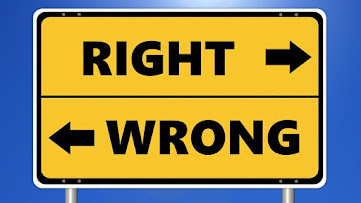Ethics for a Good Life
Introduction
Why should we learn about the ethics? Ethics are very important matter in our lives. Because if we don’t know how to behave ethically, we couldn’t live a good life. Ethics are very important because they provide structure and stabilization for the society.
Why we should be happy in our life? If we do not live with happy, we are so depressed and we cannot do our work with a peaceful mind. There are so many ways that we can stay happy.
ETHICS
At its simplest, ethics is a system of moral principles. They have an effect on how people make affect and lead their lives. Ethics is concerned with what's smart for people and society and is also described as moral philosophy.
The term is derived from the Greek word ethos which can mean custom, habit, character or disposition.
Ethics covers the following dilemmas:
- How to live a good life?
- Our rights and responsibilities.
- The language of right and wrong.
- What is good and bad?
What Ethics Are Not?
- Ethics are not the same as our feelings: We all develop defense mechanisms to safeguard ourselves, therefore we might not feel badly about a specific unethical act. Some people may actually feel good about behaving unethically.
- Ethics are not the same as religion: Most religions champion high moral standards, but not everyone seems to be religious. Ethics apply to everybody. Sometimes ethics are entirely independent of religion.
- Ethics are not necessarily synonymous with the law: There will, however, be times when the law takes a different path than ethics the result being ethical corruption that serves only the interests of small groups.
- Ethics are not synonymous with science: Science cannot tell us what to do. The sciences will offer us with insights into human behavior, but ethics provides the explanations and the guidance for what we should do.
- Ethics are not about following cultural norms: Following cultural norms works just for ethical cultures. Although most cultures probably prefer to see themselves as ethical, all societies have been and will be troubled with norms that are unethical.
What is Ethics?
- What kind of person is good?
- What kind of person should I be?
- How should I behave in this particular situation?





Comments
Post a Comment